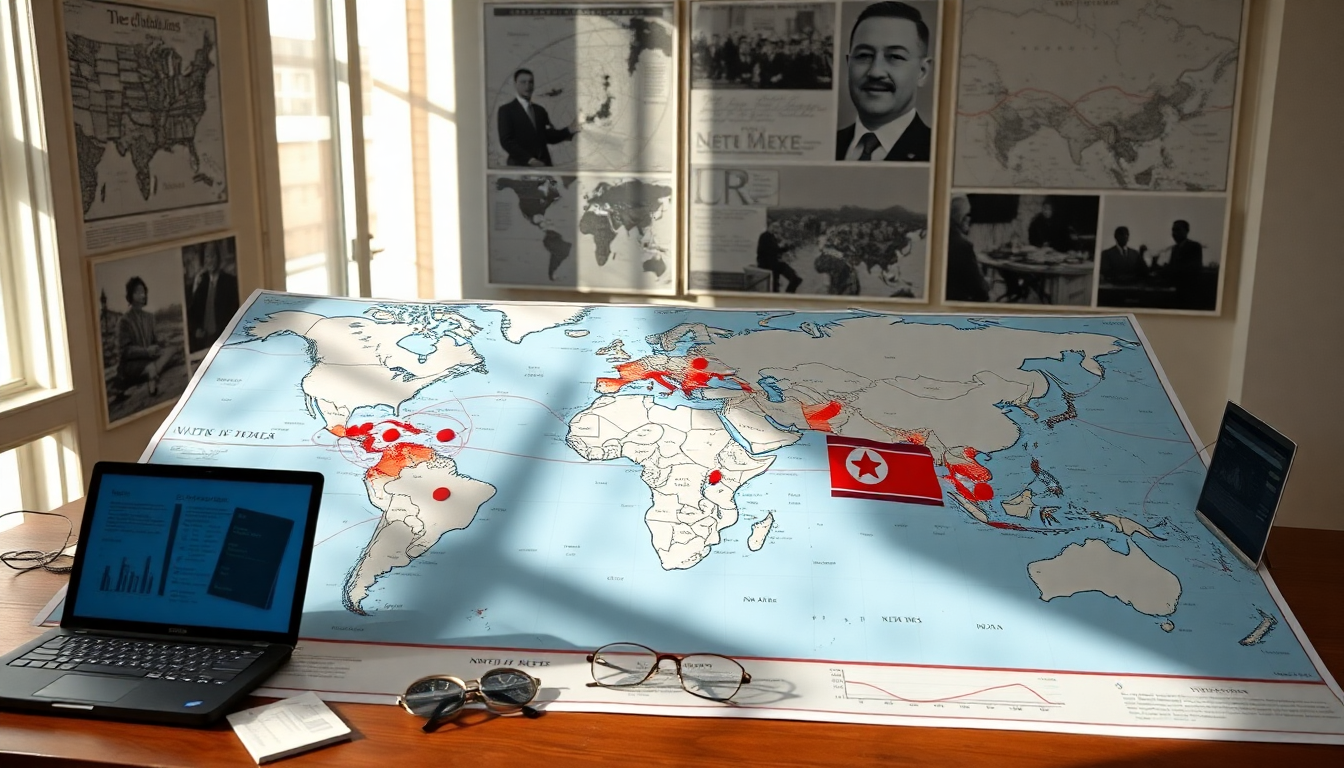Table of Contents
In a world that seems increasingly unpredictable, the actions of one country can have far-reaching effects everywhere else. Just look at the recent military actions by the United States against Iran. These developments have sparked concerns about how they might influence North Korea’s approach to its nuclear strategy. Could this mean that North Korea will feel even more compelled to bolster its nuclear arsenal as a matter of survival? Let’s dive deeper.
How US Military Actions Impact North Korea’s Nuclear Policy
According to Stephen Costello, a non-resident fellow at the Quincy Institute for Responsible Statecraft, North Korean leaders are likely interpreting US President Donald Trump’s military decisions as signs of an erratic and emotional foreign policy. This perception doesn’t just create distrust between the nations; it reinforces the idea that nuclear weapons are crucial for North Korea’s security. Is it any wonder they feel cornered?
Moreover, Niklas Swanstrom, the executive director of the Stockholm-based Institute for Security and Development Policy, suggests that the strikes on Iran could prompt North Korea to enhance the mobility and concealment of its nuclear arsenal. This shift might prioritize a second-strike capability, allowing North Korea to maintain a credible deterrent, even if it faces preemptive actions from its adversaries. It’s likely that North Korea will invest more in deep underground facilities and backup production capabilities, further entrenching its nuclear stance.
As North Korea watches how the world reacts to US military actions, it’s likely to conclude that nuclear weapons are its best bet for survival. This mindset could effectively extinguish any remaining hopes for North Korean denuclearization, as the regime increasingly views its nuclear capabilities as a protective shield against perceived threats.
The Historical Context of US-North Korea Relations
Looking back, President Trump’s first term saw some groundbreaking diplomatic efforts with North Korean leader Kim Jong-un, leading to historic summits in Singapore and Hanoi. While the Singapore summit in 2018 produced some vague promises about denuclearization, talks in Hanoi quickly fell apart, leaving both sides at a standstill. So, what does this history tell us?
It underscores the complexities of disarmament discussions and how military actions, like those against Iran, complicate the landscape. North Korea’s interpretation of these events is critical; the regime is constantly recalibrating its strategy based on the shifting global dynamics.
What This Means for Regional Security Going Forward
The fallout from the US strikes on Iran doesn’t just impact North Korea; it also has broader implications for regional security in East Asia. As North Korea digs in on its nuclear capabilities, neighboring countries like South Korea and Japan may feel the urge to rethink their own security strategies. Are we on the brink of an arms race?
Additionally, as tensions rise, the geopolitical landscape is poised to become even more complicated. China, a key player in the region, has its own aspirations for denuclearization on the Korean Peninsula, but these may be hindered if North Korea feels increasingly threatened. This could lead to a deeper reliance on nuclear deterrence.
In conclusion, the intersection of US military actions and North Korea’s nuclear strategy presents a complex challenge for both regional and global security. As this situation continues to evolve, it’s essential for policymakers to stay alert and adaptable to effectively navigate the consequences of these geopolitical tensions.


